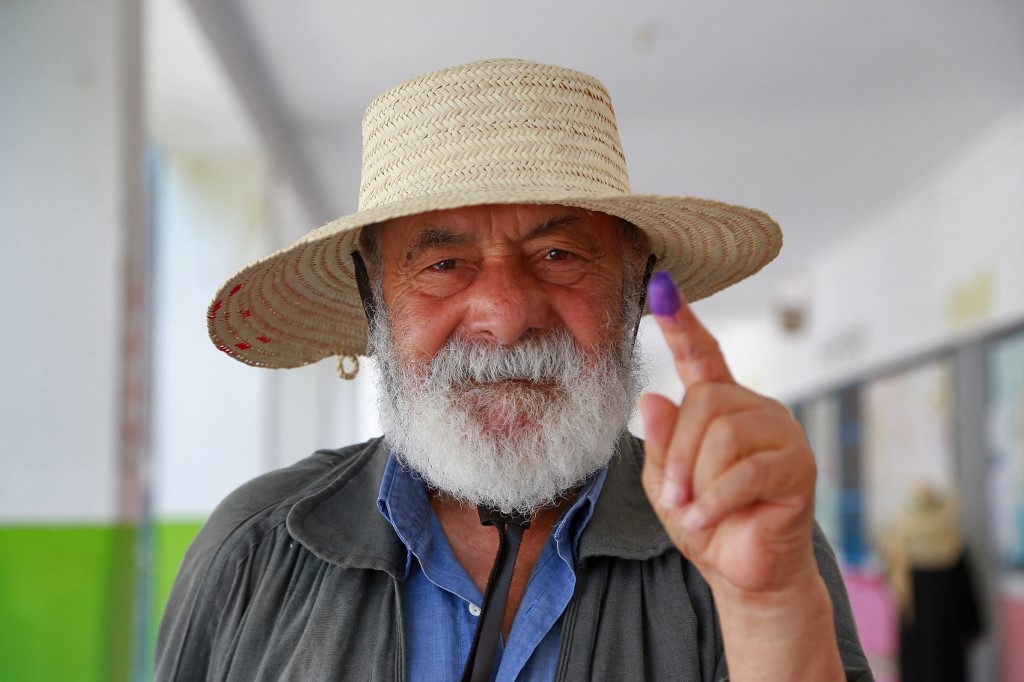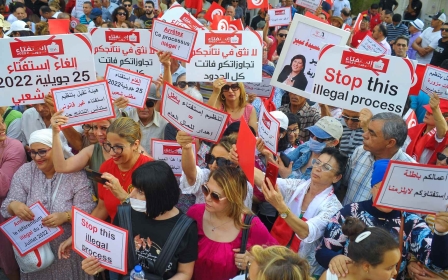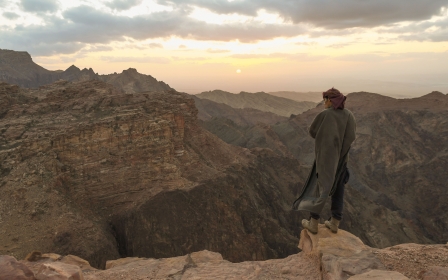Arabic press review: Tunisia did not invite EU monitors to referendum

Tunisia didn't ask EU to monitor referendum
The European Union was not invited by the Tunisian authorities to monitor this week's constitutional referendum, unlike in past polls, an EU spokesperson said.
"The European Union monitors any elections in any country after an invitation by the national authorities. However, this time we were not invited to observe the recent constitutional referendum in Tunisia," Nabila Massrali, an EU spokeswoman, told Arabi21 website. She said that the EU has previously sent observers to elections held in Tunisia after the 2011 revolution.
"Observing elections in any country outside the EU is considered part of the tools of the EU's foreign policy to support democracy, respect human rights and the rule of law around the world," she said.
"EU election observation missions provide an independent assessment of the conduct of the electoral process according to the national legislation and regional and international standards signed by the host country."
New MEE newsletter: Jerusalem Dispatch
Sign up to get the latest insights and analysis on Israel-Palestine, alongside Turkey Unpacked and other MEE newsletters
Fifth political prisoner dies in Egypt this month
A political prisoner died in Egypt on Tuesday, the fifth to do so this month, due to medical negligence in jail, the Egyptian Network for Human Rights said.
Shahat Abdel Azim Ibrahim, from Aswan in southern Egypt, died inside the medical centre in Wadi El Natrun prison after his health deteriorated due to kidney failure.
Ibrahim had been in pre-trial detention since January 2021 in connection with cases the rights group described as "politically motivated".
"Ibrahim died as a result of the prison administration's policy of restricting his access to the appropriate medicines and instead providing him with pain killers," the ENHR said.
"In addition, he suffered from different kinds of physical and psychological torture, including leaving him to suffer severe pain without care for a long time period."
The ENHR added: "The Egyptian authorities were deliberately transporting him from prison to attend his trial sessions in Aswan Governorate, which is 1,000km away. He was suffering from this arduous journey by train that takes at least 20 hours one way and the same in return, despite his critical health condition."
Gaza experiences renewed financial crisis
The government of Gaza, which has suffered from the Israeli blockade since 2007, is coming under severe criticism over a new financial crisis perceived to be a result of Palestinian Authority policies, officials told the London-based Al-Araby Al-Jadeed newspaper.
According to Salama Maarouf, a spokesperson of the Hamas-run government of Gaza, the financial crisis can be attributed to direct interventions by the Palestinian government with regard to some basic commodities, particularly fuels, which constitute a major source of the financial treasury in the besieged Gaza Strip.
He pointed out that the government has reached a stage where it is impossible to pay salaries at the same rate as it has been doing in recent years, namely 60 percent of the monthly salary.
It therefore has to wait until the end of July to determine the percentage that it will spend on employees with the least damage. Additionally, the prices of major consumer goods have almost doubled, exacerbating the poor living conditions of the coastal enclave's besieged inhabitants.
Since 2013, government employees in Gaza have not received their full salaries as a result of the Israeli blockade and drying up of the financial sources that Hamas had been receiving to support its government, which has been managing the affairs of the Strip since its victory in the Palestinian legislative elections 15 years ago.
The number of civil servants in Gaza is about 50,000. They work in both the civil and military sectors, and they provide services to more than 2.2 million people in the Strip.
70 percent of Jordanians pessimistic about economy
A survey conducted by Ipsos showed that about 70 percent of Jordanians were pessimistic about the economic situation in their country during the second quarter of 2022, according to the state TV channel Al-Mamlaka.
The results showed that approximately seven out of 10 Jordanians have a negative view of the current economic situation in their country, due to their fear of unemployment and inflation.
The Ipsos Index on Jordanian Consumer Confidence is a quarterly national survey of consumers' opinions on the current and future state of the local economy, their assessment of their personal financial conditions, and their plans to save or invest.
The index serves as an indicator of consumption tendencies in the local market. A rise in consumer confidence indicates a potential rise in consumption and an increase in the demand for investment.
*Arabic press review is a digest of news reports not independently verified as accurate by Middle East Eye.
Middle East Eye delivers independent and unrivalled coverage and analysis of the Middle East, North Africa and beyond. To learn more about republishing this content and the associated fees, please fill out this form. More about MEE can be found here.




